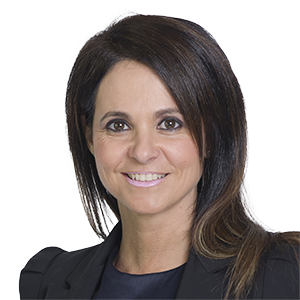Introduction
Africa faces a stark reality: contributing less than 4% of global greenhouse gas emissions, the continent is disproportionately impacted by climate change, threatening its development and stability. With COP29 on the horizon, African nations must align like never before to turn this imbalance into opportunity.
It's that time of year again for the annual Conference of the Parties (COP) meetings where nations convene to assess progress in dealing with climate change and align on climate action per the guidelines of the UN Framework Convention on Climate Change (UNFCCC).
This 29th Conference of the Parties (COP), called the 'Finance COP,' will occur in Baku, Azerbaijan, between November 11 and 22. It is located at the boundary of Eastern Europe and West Asia.
A developing country which ranks 91st on the Human Development Index, Azerbaijan is a petro-state with big plans for natural gas extraction to grow its gas export market to Europe. The President of Azerbaijan, Ilham Aliyev, recently highlighted these plans while also appealing for the need for COP29 to act on behalf of developing nations.
Azerbaijan's hosting of COP29 highlights the UNFCCC's challenging task of ensuring progress, alignment, and agreement on developmental financing to reduce carbon emissions to "limit the temperature increase to 1.5°C above pre-industrial levels," as per UNFCCC guidelines.
African heat on the rise
Since 1901, the vast majority of Africa has warmed by more than 1°C, with an increase in heat waves and hot days. The State of the Climate in Africa 2019 report showed that climate change is having an increasing effect on the African continent, with the most vulnerable being hit hardest by food insecurity, population displacement, and limited water supplies. These effects hit the most vulnerable populations hardest, intensifying food insecurity, population displacement, and strained water resources across the continent. COP29 provides a rare moment for African nations to push back, not with a plea for aid, but with a compelling vision for growth powered by sustainable partnerships.
Because climate change has adversely impacted the continent, Africa's collective voices must be amplified by its leaders at the COP29 proceedings.
Africa has made great efforts to walk the talk, as demonstrated by the high levels of ratification of the Paris Agreement (over 90%) and the number of African nations that have already committed to transitioning to green energy over the short term. Clean energy in agriculture, for example, is a priority in over 70% of African national development plans.
However, Africa's development is off track with the United Nations' Sustainable Development Goals (SDGs), which most developed nations are successfully tracking against.
The developed world is leading the discussions on climate change mitigation from a very different perspective than our continent, where 600 million people have no access to electricity. This number is close to double the population of the USA, which puts this mind-boggling power crisis into perspective.
African nations, therefore, face the unique challenge of reconciling climate change mitigation and development goals. In many cases, the global focus on climate financing is crowding out development funding for the continent, and so any COP 29 negotiations need to balance developmental objectives with a drive for growth.
The continent, however, would do well not to arrive at COP with a mindset to secure aid but to present a united front among its leading African nations that clearly articulates the role they see themselves playing in addressing global climate change concerns.
The continent's representatives would benefit from a 'winner's mindset' that is proactive, partnership-seeking, and solution-oriented, as guilt-tripping developed world nations has historically had limited positive impact on the continent.
Upskilling women's participation in Africa's evolving carbon markets
One of the areas where the continent can request partnerships and programme assistance is its evolving carbon markets.
With 60% of Africa's working women involved in agriculture and 26% engaged in entrepreneurial pursuits, this continent is where women's expertise in farming, ecosystem management and business must be harnessed in the fight against climate change. By addressing this gap, African leaders can ensure women are key players and beneficiaries in this emerging market.
The rapid growth of the African carbon market currently lacks inclusivity, with women notably absent from carbon market leadership despite being at the forefront of climate solutions. Policies and opportunities that enable women to be key participants and beneficiaries in Africa's evolving carbon markets can make a significant positive impact.
Global carbon markets, particularly the voluntary carbon market (VCM), are on the rise. The VCM is a system where individuals, companies, or organisations can offset their carbon emissions by investing in projects that reduce or harness equal amounts of greenhouse gases from the atmosphere, contributing to environmental sustainability beyond regulatory requirements.
According to the African Development Bank (AfDB), the VCM will be valued at US$40 billion by 2030. With a contribution of 21% of the global carbon credits issued in 2021, Africa is in a strong position to take advantage of this fast-growing global market's opportunities.
This move would set a path to leverage carbon markets to generate environmental gains and advance gender equality. Initiatives such as the African Union's Decade of Women's Financial and Economic Inclusion, an African Union 2020 declaration, help the continent scale up actions for progressive gender inclusion towards sustainable national, regional, and continental development.
The African Development Bank is publishing a policy paper on Gender and Carbon Market Policy to emphasise the relevance of integrating gender considerations into regional, national, and local market operations. Despite plentiful efforts to standardise the African carbon market, limited access for women to knowledge and skills through education and training poses a challenge to making this space gender inclusive.
The intersection of carbon markets and gender equality in Africa presents a unique opportunity. With the support of key partner countries and regional organisations, the continent can contribute significantly to global climate goals to shape equitable carbon markets in Africa.
COP29: A call to action for Africa’s future
As African nations head to COP29, they should stand united, resilient, and ready to shape a future where Africa's development and climate goals are realized together. African leaders have a chance to make their voices heard not only for today’s agenda but for future generations who will bear the consequences of today’s actions.






